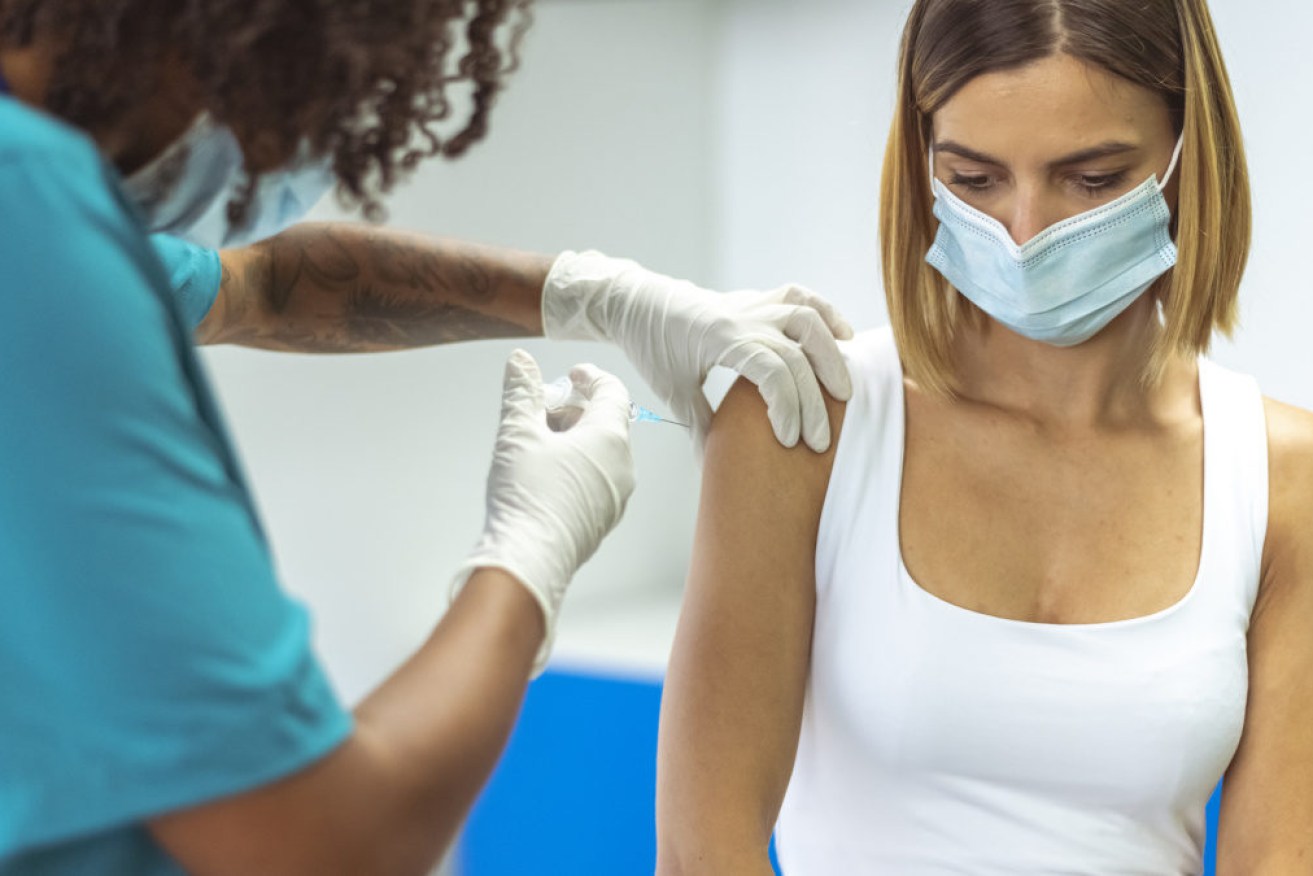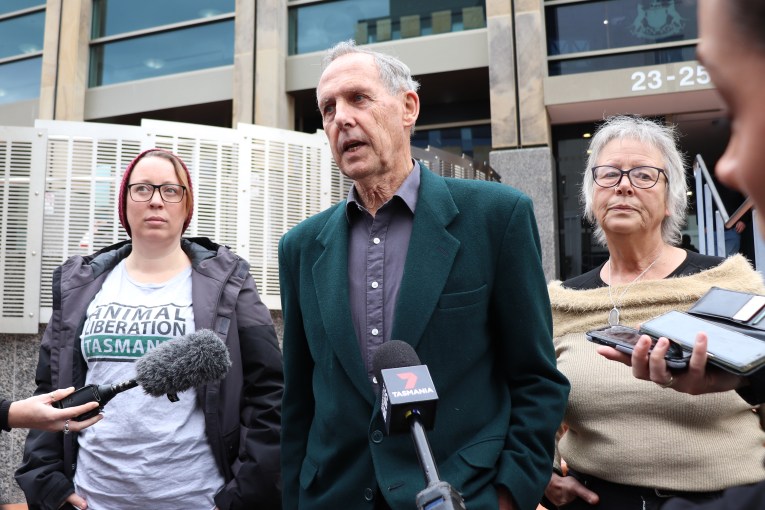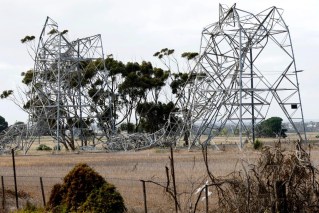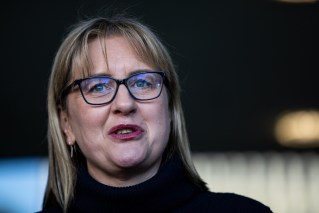AstraZeneca vaccine age limit raised to 60 in latest health advice


Vaccine age limits may be changing
The federal government’s immunisation experts have recommended the AstraZeneca vaccine be limited to those older than 60 – advising a lift from 50 after a small number of reactions in those receiving the shot.
The federal government has not yet confirmed if it will take the advice, but health minister Greg Hunt is likely to provide an update in the early part of Thursday afternoon.
Sources close to the issue told The New Daily discussions were underway on Thursday morning. Official government policy has not yet changed.
The ABC reported the Australian Technical Advisory Group on Immunisation made the age recommendation on Wednesday. It came a week after a second Australian, a 52-year-old woman, died following rare complications after receiving the AstraZeneca shot.
Australia has generally recommended the Pfizer vaccine be kept for those under 50, and AstraZeneca for over-50s. Many European nations took similar decisions, but set the AstraZeneca age at 60. Australia’s current rate of developing blood clots after receiving the vaccine is 1.8 per 100,000, on latest Therapeutic Goods Administration advice.
AstraZeneca is the bedrock piece of Australia’s vaccine rollout at the moment, and the majority of vaccines which have been distributed. Melbourne’s CSL is producing more than one million doses of the vaccine per week.
Any changes to the eligibility for the AstraZeneca shot may again stymie the speed of Australia’s vaccine rollout. Australia is due to receive increased supplies of Pfizer from July, but the vast bulk of contracted doses won’t arrive until the end of the year.
TND has contacted the federal health department, Mr Hunt, and AstraZeneca for comment.

Health Minister Greg Hunt. Photo: AAP
TND has also been told there are, currently, no immediate plans for a emergency national cabinet meeting to respond to any possible changes.
In a Sky News interview on Thursday from France, Prime Minister Scott Morrison made reference to issues with the vaccine rollout, but did not not specifically allude to any decision.
“There are shocks that come along the way. As, we’re only seeing again now. And, you know, you have to deal with those and you have to respond to them,” he said.
“You’ve just got to roll with the challenges that come your way and get the job done.”
Numerous federal and state politicians and officials have received the AstraZeneca vaccine without issue. They include Mr Hunt, former PM Julia Gillard, health department secretary Professor Brendan Murphy, Victorian chief health officer Professor Brett Sutton, NSW Premier Gladys Berejiklian, federal Labor deputy leader Richard Marles, and Western Australian Premier Mark McGowan.
Last Thursday, the Therapeutic Goods Administration’s latest vaccine safety report said the most common side effects of the AstraZeneca jab remained those “commonly experienced with vaccines generally”, like headaches, arm soreness and fatigue.
There were just 5.3 ‘adverse events’ reported per 1000 doses of vaccine, mostly minor side effects like muscle pain. However, others include a handful more cases of thrombosis with thrombocytopenia syndrome (TTS), a combination of blood clots and low platelets detected in a small number of people who received the AstraZeneca shot.
Health authorities have repeatedly pointed out that the risk of dying after contracting COVID is much higher than the risk of contracting TTS.
The TGA said it was a “rare” condition, with just two vaccine-linked deaths in Australia. Health experts stress the risk of developing a clot – let alone a fatal one – remains incredibly low, with millions of doses of the shot given in Australia. Chief medical officer Paul Kelly said it was “extremely rare”, and risks decreased in older people.
“I will point out that it is only the second death with now over 3.6 million doses of [AstraZeneca] vaccine being given across Australia,” he said last week.
At that time, the TGA said Australia had 35 confirmed cases of TTS after the AstraZeneca jab, and 13 probable cases. Of those, 31 had been discharged from hospital, 15 remained in hospital, and two had died.
“While TTS is very rare, some people will have concerns that they can discuss with their doctor. This is essential to allow people to make an informed choice,” it said.
Just last week, a statement from the Australian Technical Advisory Group on Immunisation, the nation’s expert panel on vaccines, put into context just how rare the TTS events are.
Analysing data as of May 19, when Australia had administered 2.2 million doses of AstraZeneca, ATAGI said the risk of TTS after the shot was just 1.8 per 100,000 people aged over 50.
For those older than 80, the highest risk group for COVID death, the risk was 1.5 per 100,000.
For people aged under 50 – who are recommended to get the Pfizer jab instead of AstraZeneca – the risk is 3.1 per 100,000.
Last week, Professor Kelly said the risks of TTS dropped in older people, and urged calm and confidence in the vaccines.
“There is definitely a much lower risk of this event, this clotting events, the older one gets. There is a definite cutpoint there at about the age of 50,” he said.
Professor Kelly said Australian medical experts were getting better at detecting and treating the TTS cases.
The TGA also said it had recorded several cases of myocarditis (inflammation of the heart muscle) and pericarditis (inflammation of the membrane around the heart) in people who’d received the Pfizer vaccine.
As of June 6, the TGA was aware of nine cases of pericarditis and one case of myocarditis.
“There is no indication at present that these cases are due to the vaccine but the TGA is collaborating with international medicine regulators on this issue,” it said.
-more to come








